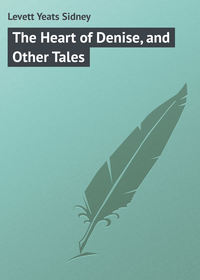Kitabı oku: «The Heart of Denise, and Other Tales», sayfa 9
Bir şeyler ters gitti, lütfen daha sonra tekrar deneyin
Türler ve etiketler
Yaş sınırı:
12+Litres'teki yayın tarihi:
19 mart 2017Hacim:
250 s. 1 illüstrasyonTelif hakkı:
Public Domain